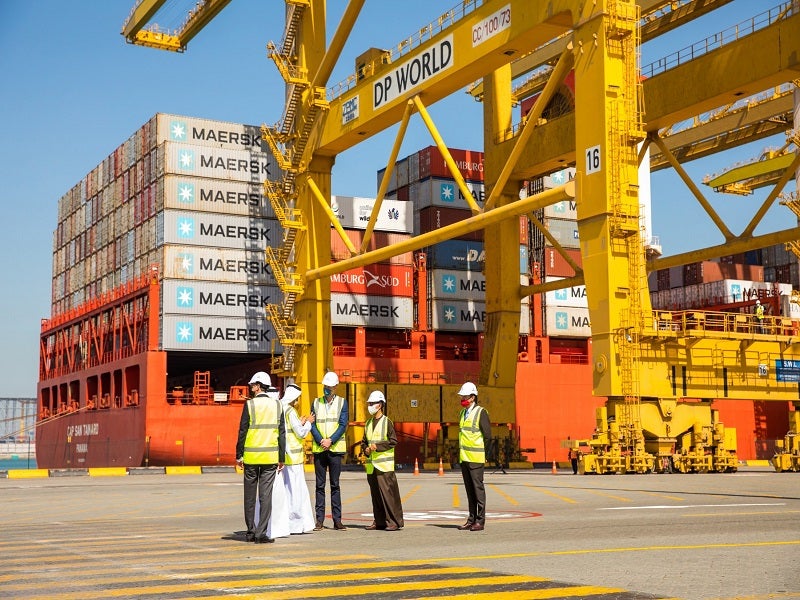[ad_1]

DP World has reached a long-term strategic alliance with Danish shipping giant A P Moller-Maersk to reduce emissions at Jebel Ali Port in Dubai, United Arab Emirates (UAE).
The agreement will support Maersk’s clients as well as deploy processes aimed at boosting quayside productivity.
Quicker gate turnaround times at the port will also result in lower fuel usage.
Furthermore, access to visibility solutions that deliver real-time data will be offered, facilitating supply chain planning and helping to cut down carbon footprints.
Last year, DP World teamed up with Mærsk Mc-Kinney Møller Center for Zero Carbon Shipping to further maritime decarbonisation.
Maersk has set a target to reach net zero emissions by 2040 across its entire business, while DP World has a net zero carbon status target of 2050.
Last year, DP World chairman and group CEO Sultan Ahmed Bin Sulayem said that the firm plans to spend up to $500m to reduce CO₂ emissions from its operations by nearly 700,000 tons over the next five years.
Commenting on the latest partnership, DP World UAE vice-president ports and terminals Shahab Al Jassmi said that it will support this carbon reduction goal.
He continued: “Achieving this target alone will be challenging, but by working with reliable partners, such as Maersk, we can accelerate our progress and offer solutions to help our partners achieve their own sustainability goals at the same time.”
The Danish shipping firm will implement two of its tools for clients transporting their cargo through the Dubai port.
These tools are Maersk Accelerate, which is a fast-tracking service using priority cargo management, as well as the cargo storage solution Maersk Flex Hub.
Meanwhile, Maersk Growth, the venture capital unit of the shipping company, has invested in Berlin-based green methanol firm C1 Green Chemicals.
The investment amount has not been disclosed but is Maersk’s first methanol investment of 2023.
C1 has developed a bioreactor for methanol production that is said to be more selective than the currently used heterogeneous catalysis.
The C1 technology is said to enable mass production of green methanol at a ‘competitive price’.
Maersk head of Future Fuels Innovation Maria Strandesen said: “With current technology, powering our vessels with green methanol will be much more expensive. We believe in C1’s ultra-efficient catalysis to bring down the price – and scale fast with their decentralised approach.”
Recently, Maersk signed green methanol partnerships with US-based SunGas Renewables and Carbon Sink.
[ad_2]
Source link








